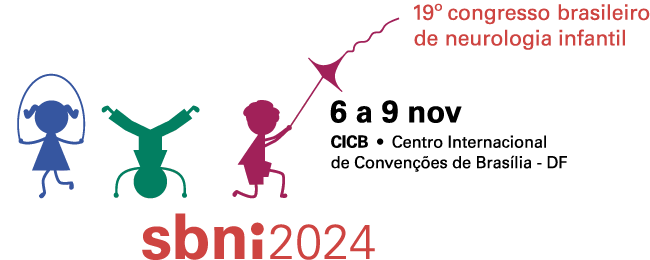Dados do Trabalho
Título
CLINICAL AND MOLECULAR CHARACTERIZATION OF BRAZILIAN PATIENTS WITH MYOTUBULAR MYOPATHY
Introdução
X-linked myotubular myopathy (XLMTM) is a rare genetic neuromuscular disorder characterized by severe muscle weakness, caused by mutations in the MTM1 gene, located on the X chromosome. This gene encodes the protein myotubularin, which is essential for the development and maintenance of muscle cells. XLMTM affects approximately 1 in 50,000 live male births and usually presents at birth with severe hypotonia, widespread weakness including face, ptosis, extraocular muscles, with severe respiratory and swallowing difficulties. Most of the patients who survival longer, will present severe motor disability and will be dependent on respiratory and feeding support.
Objetivo
The aim of this study is to provide a broader view of Brazilian patients with XLMTM, including clinical and molecular data.
Método
The legal guardians of patients were invited to participate in a virtual meeting to inform about the national registry for patients with XLMTM. After obtaining consent, the legal guardians and their physicians were contacted for individual meetings with a team member for the collection of retrospective clinical data and additional tests.
Resultados
The study included a total of 18 patients from 16 families with XLMTM confirmed by genetic testing. Among the 18 patients selected, four died due to complications related to XLMTM. Here we present data from 14 male patients (from 13 unrelated families) aged 1-16 years (mean age of 7.7 years). 100% of the patients are non-ambulatory, 6 (42.9%) are unable to sit without support, 7 (50%) have adequate head control, 6 (42.8%) have partial head control and 1 (7.15%) have no head control. All patients were dependent on invasive ventilation (tracheostomy); 7 (50%) required it 24 hours per day, 4 (28.6%) for between 12 and 24 hours/day, and 3 (21.4%) for less than 12 hours/day. Regarding feeding, all patients require feeding support, but one receiving a combination feeding (G-tube + oral). The genetic data from 16 families revealed: two chromosomal microdeletions in Xq28, and 12 MTM1 intragenic mutations: 2 frameshift, 2 splice site, 5 missense and 3 stop codon. The mutation p. Arg 222*was found in 2 unrelated families.
Conclusão
XLMTM is a severe, genetically inherited neuromuscular disorder that profoundly affects individuals, leading to significant difficulties in motor, bulbar, and respiratory functions. This is the first description with comprehensive overview of the disease and the profile of Brazilian patient’s cohort.
Referências
Beggs AH, Byrne BJ, de Chastonay S, Haselkorn T, Hughes I, James ES, et al. A multicenter, retrospective medical record review of X-linked myotubular myopathy: the recensus study. Muscle Nerve 2018;57:550–60.
Graham RJ, Muntoni F, Hughes I, Yum SW, Kuntz NL, Yang ML, et al. Mortality and respiratory support in X-linked myotubular myopathy: a RECENSUS retrospective analysis. Arch Dis Child 2020;105:332–8.
Pierson CR, Tomczak K, Agrawal P, Moghadaszadeh B, Beggs AH. X-linked myotubular and centronuclear myopathies. J Neuropathol Exp Neurol 2005;64: 555–64.
Palavras Chave
X-linked myotubular myopathy; MTM1 gene; retrospective review
Área
Doenças neuromusculares
Autores
JULIANA GURGEL-GIANNETTI, ANA CAROLINA MONTEIRO LESSA MOURA, CLARA PINHATI , LIVIA LOBO DA SILVA COSTA , SIMONE CONSUELO AMORIM , JULIANA PASTANA RAMOS FREITAS , CLARISSE PEREIRA DIAS DRUMOND FORTES , MARCONDES CAVALCANTE FRANÇA JR, EDMAR ZANOTELI
